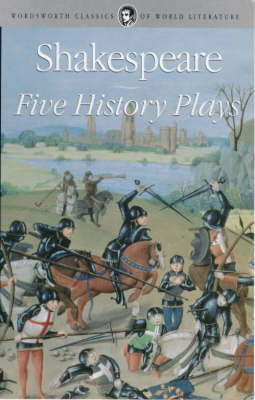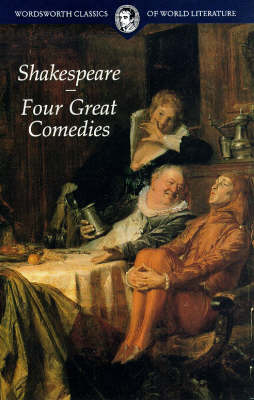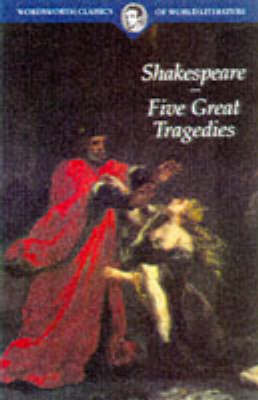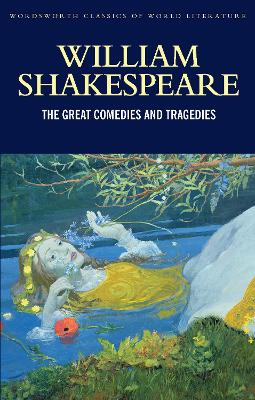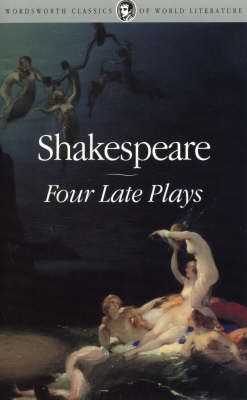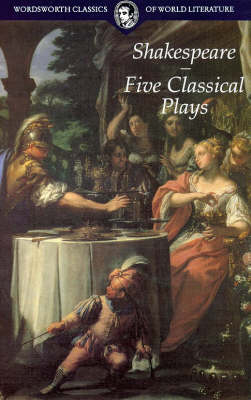Wordsworth Classics of World Literature
6 total works
The central theme of these five history plays is political, they deal with the gain and loss of power. The plays included are Richard II, Henry IV parts I and II, Henry V and Richard III. Written in the period of national fervour following the abortive Spanish Armada campaign of 1588, the plays reflect the horrors of civil war and anarchy.
The four comedies collected in this text were written between 1595 and 1602, and demonstrate the evolution of Shakespearean comic form. The collective triumph of these plays lies in their mingling of humorous stage business and word-play with a more serious consideration of issues of identity, gender, dreaming, the meaning of love and even theatre itself.
A volume of five of Shakespeare's most enduring works of tragedies, offering perennial insights into human emotion as well as telling inscriptions of the particular concerns of Shakespeare's own day.
The Comedies with Introductions by Judith Buchanan.
These Comedies are among the best loved of Shakespeare's plays. In each a problem emerges, is then intensified to a point of maximum confusion and potential upset, before the chaos is resolved, however improbably, into general goodwill and a spate of marriages. The triumph of these plays lies in the way they mingle humorous stage business and dexterous word play with a more serious study of identity, gender, dreaming, the meaning of love, even of the theatre itself. They reassure us that with all its faults, the world will always in the end be redeemable.
The Tragedies with Introductions by Emma Smith.
'Not for an age but for all time.' So Ben Jonson established what we now take for granted: Shakespeare's unique place among the world's great authors. Romeo and Juliet shows us the archetypal story of fated young love; Hamlet, the tortured psyche of the young prince of Denmark; Othello, a strikingly modern representation of racial difference; King Lear, a man stripped of all material and psychological comforts; and Macbeth, a dark investigation of the origins and effects of, evil. The plays throw a fascinating light on the concerns of Shakespeare's day, yet offer perennial insights into the nature of human emotion.
These Comedies are among the best loved of Shakespeare's plays. In each a problem emerges, is then intensified to a point of maximum confusion and potential upset, before the chaos is resolved, however improbably, into general goodwill and a spate of marriages. The triumph of these plays lies in the way they mingle humorous stage business and dexterous word play with a more serious study of identity, gender, dreaming, the meaning of love, even of the theatre itself. They reassure us that with all its faults, the world will always in the end be redeemable.
The Tragedies with Introductions by Emma Smith.
'Not for an age but for all time.' So Ben Jonson established what we now take for granted: Shakespeare's unique place among the world's great authors. Romeo and Juliet shows us the archetypal story of fated young love; Hamlet, the tortured psyche of the young prince of Denmark; Othello, a strikingly modern representation of racial difference; King Lear, a man stripped of all material and psychological comforts; and Macbeth, a dark investigation of the origins and effects of, evil. The plays throw a fascinating light on the concerns of Shakespeare's day, yet offer perennial insights into the nature of human emotion.
The Shakespeare comedies collected in this text are frequently known as the romances. It is argued that they conclude in a spirit of hope as the main characters are reunited in an aura of reconciliation, wrongs are righted, and exiles returned to their homes.
